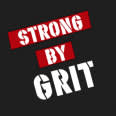For a while I wanted a personal trainer, and found Jacques at Strong By Grit. He helped me from the first day we met with a plan of action on how we're going to achieve my goals. He provided assistance on a level which I want from a personal trainer....
Best personal trainers in Stellenridge, Western Cape
Top personal trainers near you
Browse the best personal trainer experts and compare ratings and reviews.
Hire the best personal trainer
Search Uptasker for the best personal trainers
How can a personal trainer help me?
A personal trainer is a brilliant guide for those who want to keep fit and healthy in a manner which optimizes benefit without straining the capabilities of the body. Personal trainers are also experts at toning certain areas of the body and building up strength and fitness according to each client’s abilities. A personal trainer will create a customized workout regime, ensuring safety is foremost for the client. It is all very well going to a gym and exercising on all the machines available, but you might just be doing more harm than good in your efforts. If, for instance, you have a chronic back problem, you may well be aggravating the problem by undertaking unsupervised exercises which put additional strain on the back muscles and joints. A personal trainer will assist in strengthening weak muscles and aiding mobility and endurance without causing any further deterioration or injury to the body.
How can a personal trainer help with different needs?
There are four main types of physical activity, being: aerobic, muscle-strengthening, bone-strengthening and stretching, and each activity works in a different way, has a different focus and end result. Aerobic exercise, for example, has a direct benefit on the lungs and heart, whereas strengthening exercises increase flexibility by placing the emphasis on the body’s joints and supporting muscles. Working with a personal trainer will ensure that you are carrying out exercises which are aimed at the areas you need to work on. If you are a little hesitant at being the sole focus of a personal trainer, it is possible to join a small group led by a trainer, with the same end result. Personal trainers assist in maintaining motivation in their clients by setting achievable goals and providing feedback and encouragement.
Principles of good practice are vital
Principles of good practice are always foremost in the minds of personal trainers. For example :
- being sore is not indicative of a good workout;
- it is not necessary to ‘punish’ clients with harder workouts when they have exceeded their agreed dietary allowance;
- there is a limit to the amount of protein that the body needs. Excessive protein intake does not equal muscle growth;
- a good warm-up procedure is essential before hard training;
- empathy and understanding of the client’s lifestyle and motivation is important to achieve the best results;
- adopting a long-term focus with clients is vital in order to achieve long-term results;
- there is no single exercise which will build fitness, muscle or strength;
- ensure that instructions are communicated clearly to the client. PT jargon does not help the client to understand what needs to be done. A personal trainer knows what is required, but the client probably doesn’t, so explanation and, if necessary, demonstration may be necessary;
- a personal trainer is not the sole decision-maker. He or she is there to guide and advise clients to make the best decisions for themselves and their lifestyles;
- personal training should not consist of just counting repetitions and pushing the client’s endurance levels. It must involve taking the client from one fitness point to another in the safest, most effective and enjoyable manner;
- if an exercise plan devised for a client is not achieving the desired results, be prepared to re-assess the regime and adapt it for better results. Nothing is set in stone, and what works for one person, may not work for another. This is all part of coaching for results.
The above are just a few of the principles which govern a good personal trainer’s approach and attitude. There are many more, which makes it clear that a personal trainer is a skilled, trained and highly knowledgeable specialist who operates in a disciplined sphere of expertise.
How to find the right personal trainer for your needs
Check their online ratings and customer reviews
Word of mouth may ultimately be the best way to find the right personal trainer for your needs, especially if you have friends or colleagues who are working with one of these specialists. Alternatively, you could locate them through various gyms where they might be based. Sports and allied magazines and publications are also good resources, as is the Yellow Pages. Whilst they may not yet be overly active in advertising via the internet, a good search site such as Uptasker may help in this regard. Uptasker provides online ratings, customer reviews and website links (if available) which are an invaluable aid. Since it lists in geographical locations, finding a personal trainer through this site is much faster than other search engines.
Top personal trainer tips

If you are planning to employ a personal trainer, be prepared to listen to advice and follow the exercise plan. Don’t make excuses and think that you will actually achieve results without the effort involved. And, please, don’t think that periods of regular exercising will automatically recharge your metabolism and give you the freedom to eat junk food and indulge in sweet treats with abandon. Controlled and supervised exercise under the guidance of a personal trainer, together with a guided diet and perhaps certain lifestyle changes, will do wonders for both your mind and body. For more tips, see our personal trainer articles.
Read Personal Trainer articles







